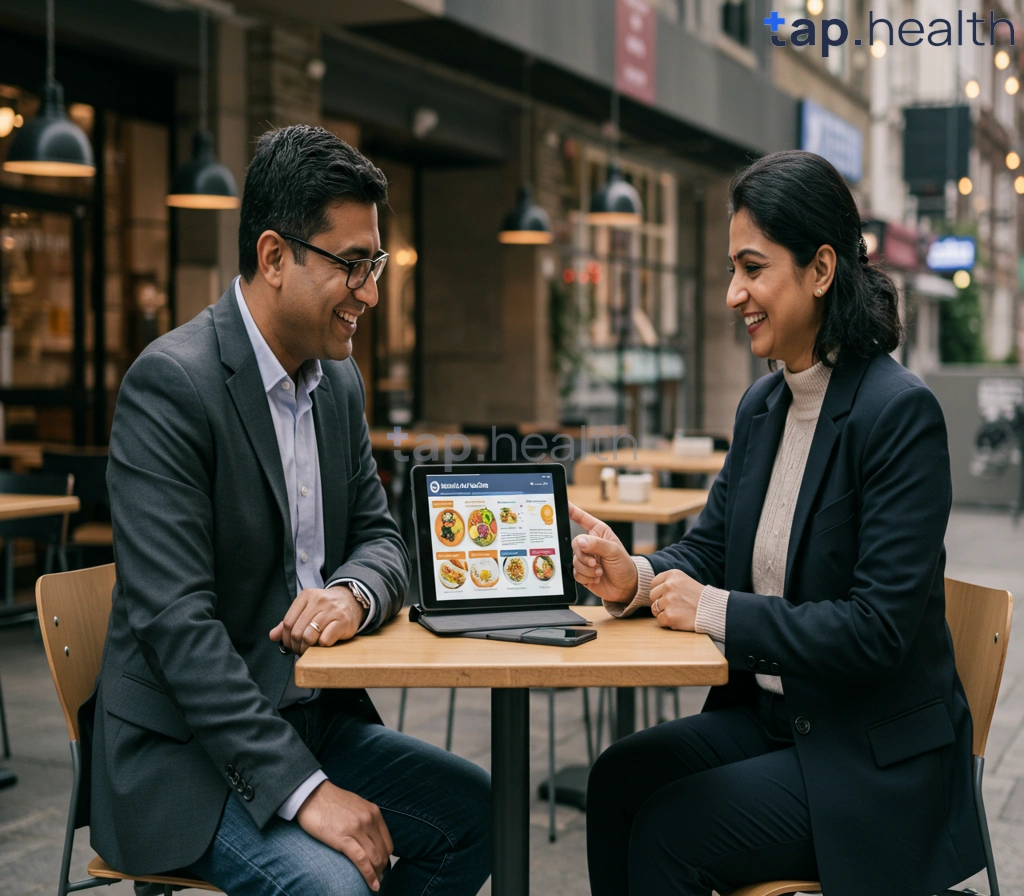Table of Contents
- Mastering Diabetes: Your Guide to Nutritional Success
- Diabetes Diet: Expert Strategies for Blood Sugar Control
- Conquer Diabetes Through Nutrition: Meal Planning & Recipes
- Effective Nutrition Plans for Managing Diabetes
- Is Your Diet Sabotaging Your Diabetes Management?
- Frequently Asked Questions
- References
Living with diabetes can feel like navigating a minefield, but it doesn’t have to be a constant struggle. This blog is dedicated to helping you conquer diabetes through expert advice on nutrition and diet strategies. We’ll explore practical, delicious, and sustainable ways to manage your blood sugar levels, improve your overall health, and reclaim your energy. Forget restrictive diets and complicated plans; we’re here to empower you with simple, effective strategies that fit seamlessly into your life. Let’s embark on this journey together toward a healthier, happier you!
Mastering Diabetes: Your Guide to Nutritional Success
Diabetes affects a significant portion of the global population, with a substantial number—61%—of those diagnosed falling within the 20-64 age bracket, according to the International Diabetes Federation. In India and other tropical countries, this statistic is particularly relevant, often exacerbated by lifestyle factors and readily available processed foods. Successfully managing diabetes in these regions requires a targeted approach to nutrition.
Prioritizing Whole Foods
Prioritizing whole, unprocessed foods is paramount. Focus on incorporating a wide variety of fresh fruits and vegetables readily available in your region, such as mangoes, papaya, leafy greens, and various legumes. These provide essential vitamins, minerals, and fiber, crucial for blood sugar control. Limit refined carbohydrates like white rice and sugary drinks, common culprits in many Indian and tropical diets.
Managing Carbohydrate Intake
Understanding carbohydrate portion control is key. Instead of completely eliminating carbohydrates, learn to choose complex carbohydrates over simple sugars. Brown rice, whole wheat roti, and millets offer sustained energy release, preventing sharp blood sugar spikes. Consulting a registered dietitian familiar with the local dietary landscape can provide personalized guidance on carbohydrate portioning. For more tips on effective management, check out 10 Proven Tips to Effectively Manage Diabetes | Simple Guide.
Incorporating Traditional Wisdom
Many traditional Indian and tropical recipes naturally incorporate ingredients beneficial for diabetes management. Explore spices like turmeric, cinnamon, and ginger, known for their anti-inflammatory and blood sugar-regulating properties. Incorporating these into your meals can add flavor and support overall health.
Seeking Regional Support
Remember, managing diabetes is a journey, not a race. Connect with local support groups and healthcare professionals who understand the specific challenges and dietary considerations within your region. As you age, managing diabetes may present unique challenges. For advice on navigating these, see our guide on Managing Diabetes as You Age: Challenges and Solutions. By embracing these strategies, you can take control of your diabetes and enjoy a healthier, more fulfilling life.
Diabetes Diet: Expert Strategies for Blood Sugar Control
Managing diabetes effectively in Indian and tropical countries requires a nuanced approach to diet. While general guidelines recommend maintaining blood pressure below 140/90 mmHg, with some aiming for below 130/80 mmHg, diet plays a crucial role in achieving these targets and preventing complications. Dietary choices directly impact blood sugar levels, and understanding this is key to successful management.
Prioritizing Whole Foods
Incorporating plenty of fresh, seasonal produce readily available in Indian and tropical climates is essential. Think vibrant vegetables like spinach, okra, and bitter gourd, known for their low glycemic index and beneficial nutrients. Fruits like mangoes, papayas, and bananas, while containing sugar, should be consumed in moderation and as part of a balanced meal. Focus on whole grains like brown rice and millets, which offer sustained energy release compared to refined carbohydrates. Lean protein sources, such as lentils, beans, and fish, are also vital for blood sugar regulation and overall health. For more specific guidance on weight management within a diabetic diet, see our article on How to Lose Weight with Diabetes Diet Plan.
Spices and Herbs: The Natural Advantage
Indian and tropical cuisines are rich in spices and herbs with potential blood sugar-regulating properties. Cinnamon, turmeric, and ginger have shown promising effects in managing blood glucose levels. Incorporating these naturally into your meals can enhance flavor and contribute to overall health benefits. However, remember that spices are not a substitute for proper medication and dietary management.
Portion Control and Meal Timing
Consistent meal timing and portion control are paramount. Avoid skipping meals, as this can lead to blood sugar fluctuations. Smaller, more frequent meals can help maintain stable blood sugar levels throughout the day. Consulting a registered dietitian specializing in diabetes management is crucial for personalized dietary plans tailored to individual needs and regional food preferences. This ensures you create a sustainable and culturally relevant diabetes management strategy. For a structured approach, you might find our Diet Chart for Diabetic Patients to Control Diabetes helpful.
Conquer Diabetes Through Nutrition: Meal Planning & Recipes
Understanding the Challenge: Diabetes in India and Tropical Countries
Diabetes disproportionately affects low- and middle-income countries, with over 75% of those living with diabetes residing in these regions, as highlighted by the International Diabetes Federation. This underscores the critical need for accessible and culturally relevant diabetes management strategies in India and other tropical nations. Effective nutrition plays a pivotal role in controlling blood sugar levels and preventing complications.
Building a Diabetes-Friendly Meal Plan
Creating a successful meal plan requires focusing on whole grains, lean proteins, and plenty of non-starchy vegetables. Think of incorporating regional staples like lentils (dal), vegetables readily available in your area, and spices known for their blood-sugar regulating properties. For example, incorporating bitter gourd (karela) or drumstick leaves (moringa) – common in many Indian and tropical cuisines – can offer significant health benefits. Portion control is also vital. Small, frequent meals can help prevent blood sugar spikes. For more comprehensive tips, check out our guide on 10 Proven Tips for Effective Diabetes Management.
Simple & Delicious Recipes
Explore recipes featuring easily accessible ingredients. Focus on methods that minimize added sugars and unhealthy fats. Many traditional dishes, with slight modifications, can be adapted for diabetes management. For example, a lentil soup with added vegetables can be a hearty and nutritious meal. Substituting refined grains with whole grains like brown rice or millets is another simple yet effective change. If you’re looking to prevent diabetes, Pre Diabetic Diet Chart: Simple Plans to Prevent Diabetes offers helpful strategies.
Taking Action: Your Next Steps
Access to proper nutrition is crucial for managing diabetes, particularly in regions where resources may be limited. Start by incorporating these simple strategies into your diet. Consult a healthcare professional or registered dietitian for personalized guidance tailored to your specific needs and cultural context. Remember, conquering diabetes is a journey, not a sprint, and small changes can make a big difference.
Effective Nutrition Plans for Managing Diabetes
Managing diabetes effectively in Indian and tropical countries requires a nuanced approach to nutrition. While general guidelines suggest around 45–60 grams of carbohydrates per meal for many individuals with diabetes, this is a starting point and needs personalization based on individual factors like age, activity level, and specific health conditions. It’s crucial to consult with a doctor or registered dietitian for a tailored plan.
Understanding Carbohydrate Intake
In tropical climates, where fresh fruits and starchy vegetables are abundant, careful carbohydrate selection is vital. Focus on low-glycemic index (GI) carbohydrates like whole grains (brown rice, millets, oats), legumes (moong dal, masoor dal), and non-starchy vegetables (bitter gourd, spinach, drumstick). These release glucose into the bloodstream more slowly, preventing sharp spikes in blood sugar. Limit refined carbohydrates like white rice, sugary drinks, and processed snacks commonly found in many regions. For further information on optimizing nutrient density in your meals, see our article on Nutrient Density in Diabetic Meal Plans: Prioritizing Quality Foods.
Incorporating Regional Foods
Indian and tropical cuisines offer a wealth of diabetes-friendly options. Spices like turmeric and cinnamon possess anti-inflammatory properties that can aid in diabetes management. Incorporating traditional dishes with modifications can be highly effective. For instance, swap white rice for brown rice in biryanis, or use less oil in curries. Prioritize lean protein sources like fish, lentils, and chicken to support blood sugar control and overall health. While diet is crucial, remember that Safe and Effective Dietary Supplements for Diabetes Care can also play a supporting role, but always consult your doctor before starting any supplement regimen.
Practical Tips for Success
Remember portion control is key. Regular monitoring of blood sugar levels helps you understand how different foods affect your body. Consider consulting with a local dietitian familiar with regional dietary habits for personalized guidance. Building a sustainable, enjoyable eating plan tailored to your lifestyle and cultural preferences is crucial for long-term success in managing diabetes. Prioritize regular physical activity to further enhance blood sugar control and overall well-being.
Is Your Diet Sabotaging Your Diabetes Management?
Shockingly, 50% of diabetes cases worldwide remain undiagnosed, according to the International Diabetes Federation. This highlights the urgent need for proactive diabetes management, and diet plays a crucial role. In India and other tropical countries, specific dietary challenges and cultural practices can significantly impact blood sugar control. Are you unknowingly hindering your progress?
Understanding the Tropical Diet & Diabetes
Many traditional diets in India and tropical regions are rich in carbohydrates, often from rice, refined flour, and sugary sweets. While these foods form part of cultural heritage, their high glycemic index can lead to rapid blood sugar spikes, exacerbating diabetes. Furthermore, the readily available and affordable nature of processed foods further complicates matters. Managing diabetes effectively in these regions demands a strategic approach to food choices.
Actionable Steps for Better Diabetes Management
Prioritizing whole grains like millets (bajra, jowar) and brown rice over refined options is a crucial step. Increasing your intake of fresh vegetables, fruits (especially those low on the glycemic index), and lean protein sources (like lentils and fish) is equally important. Portion control is essential, alongside mindful snacking choices – opting for nuts, seeds, or yogurt over processed snacks. Remember to consult a registered dietitian or healthcare professional for personalized dietary recommendations tailored to your individual needs and cultural context. Regular physical activity complements a healthy diet, helping to regulate blood sugar levels effectively. Avoiding some of the 5 Common Mistakes People Make in Managing Diabetes is also crucial.
Taking Control of Your Health
Don’t let undiagnosed diabetes or unsuitable dietary habits control your life. Take charge of your health today. Seek a diabetes check-up and consult a healthcare professional to develop a personalized diabetes management plan. Remember, small changes in your diet can significantly impact your well-being and quality of life. The journey to better health starts with informed choices and consistent effort. It’s also important to remember that managing diabetes often involves managing other health conditions, such as cholesterol. Learn more about How to Manage Cholesterol Levels with Diabetes?
Frequently Asked Questions on Conquer Diabetes: Expert Nutrition & Diet Strategies
Q1. What is the key to managing diabetes effectively in India and other tropical countries?
Prioritizing a culturally sensitive, nutrition-focused approach is key. This involves focusing on whole, unprocessed foods like fresh fruits, vegetables, legumes, and whole grains, and limiting processed foods, refined carbohydrates, and simple sugars.
Q2. What specific dietary changes are recommended for better diabetes management?
Replace refined carbohydrates and simple sugars with complex carbohydrates. Practice portion control and maintain consistent meal timing. Incorporate traditional spices like turmeric, cinnamon, and ginger for added health benefits.
Q3. How can I find personalized guidance for managing my diabetes within my cultural context?
Seek personalized guidance from a registered dietitian familiar with local dietary habits. They can create a plan that works for you, considering your cultural preferences and other health conditions.
Q4. What role does community and healthcare support play in diabetes management?
Support from local diabetes groups and healthcare professionals is crucial for long-term success. These resources provide encouragement, education, and access to necessary medical care.
Q5. Are there any challenges or limitations to consider when managing diabetes in tropical regions?
Readily available processed foods and lifestyle factors can exacerbate diabetes. Developing sustainable strategies that incorporate regional foods and address challenges related to age and other health conditions is vital for long-term success.
References
- A Practical Guide to Integrated Type 2 Diabetes Care: https://www.hse.ie/eng/services/list/2/primarycare/east-coast-diabetes-service/management-of-type-2-diabetes/diabetes-and-pregnancy/icgp-guide-to-integrated-type-2.pdf
- Your Guide to Diabetes: Type 1 and Type 2: https://www.niddk.nih.gov/-/media/Files/Diabetes/YourGuide2Diabetes_508.pdf




